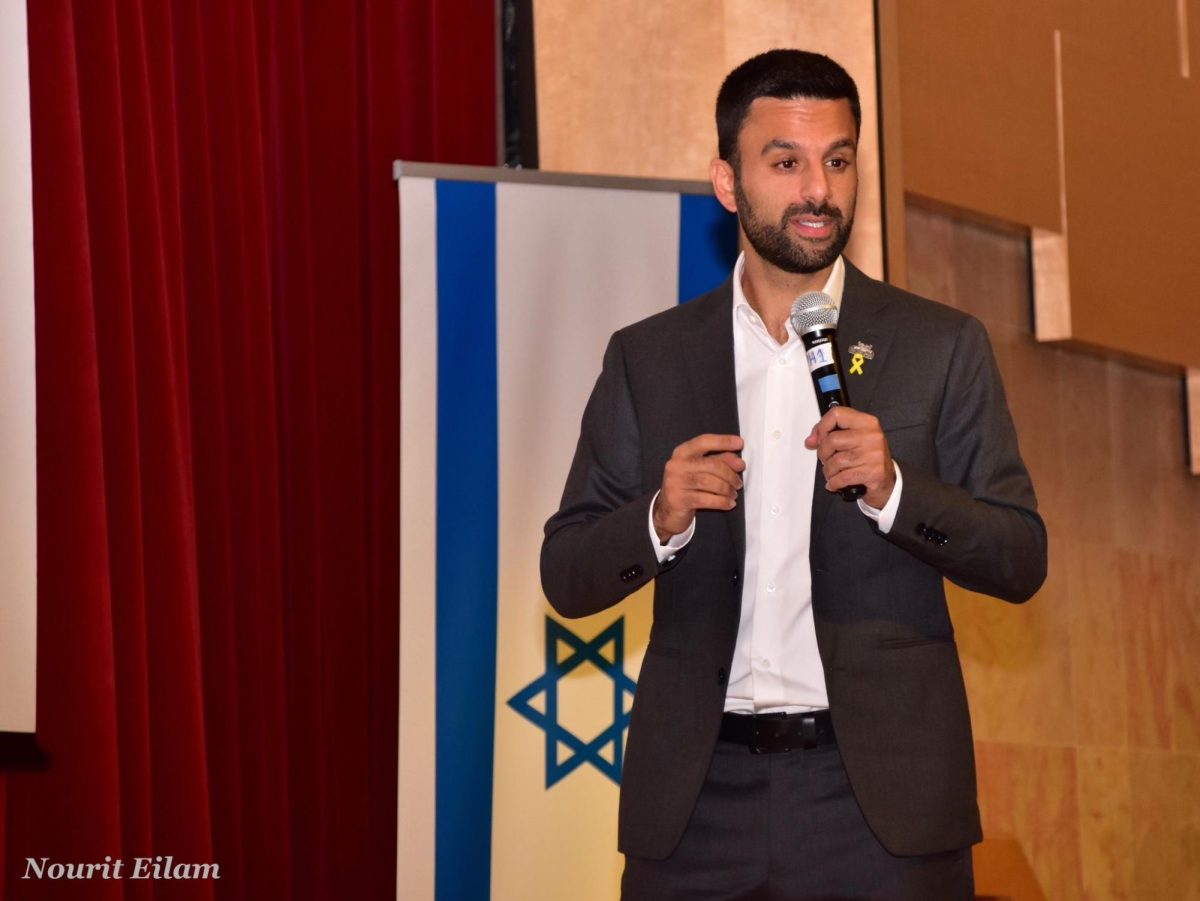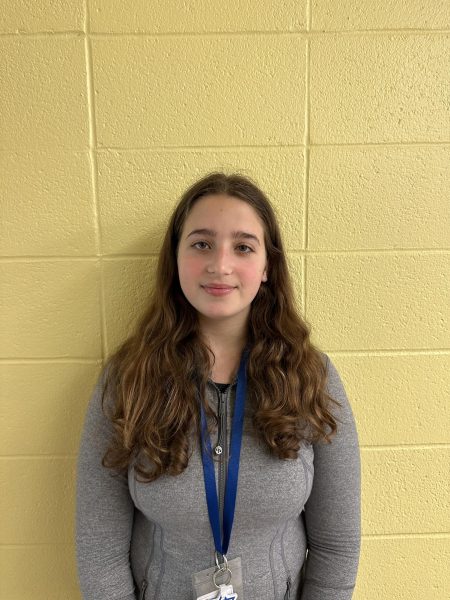On Thursday February 1, the Israeli American Council (IAC) activism programs hosted an event at the Kaplan JCC on the Palisades with journalist and activist Yoseph Haddad. At the event, many teenagers, educators, principals, and superintendents from the Bergen County community arrived to hear Haddad speak. In his presentation, he shared both his knowledge about the Israel-Hamas war and his advocacy efforts through his personal experiences.
Haddad was born in Haifa, the most diverse city in Israel, but then moved to Nazareth, one of the biggest Arab communities in the country. As a child, he loved to play soccer. He would always go on a bus to Haifa with his friends just so he could play.
“In the neighborhood of Kiryat Eliezer there was a place we could play together and who played there?” Haddad said. “Jews, Arabs, Christians, Muslims, Druze, secular, religious doesn’t matter, that’s who we were, and do you think at that age we cared if we were passing the ball to an Arab or if we were passing to a Jew?” He adopted the point of view of not discriminating against anyone based on his or her religion or ethnicity, something he still practices today.
Later on in life, Haddad volunteered to join the Israeli Defense Force (IDF) and served in the Golani Brigade for a few years. The IDF doesn’t force Arab citizens of Israel who are Muslim or Christian to join the IDF, but they may choose to volunteer for military service. In 2006, the Second Lebanon War broke out, and Haddad was hit by an anti-tank missile. Afterward, soldiers lifted him on their shoulders and carried him to safety as they were being fired at.
But Haddad didn’t just come to the JCC event to talk about how he served and was injured in the Israeli army. He came to talk about his role in activism and how he uses his personal stories to educate others. Around the world, misinformation spreads about Israel’s population. By using the right information, he is able to showcase the partnership that he believes in.
“I hate the word coexistence because what coexistence means in my book is like this: ‘I don’t like you, you don’t like me but let’s coexist’ … Let’s be in partnership because partnership is the right way to describe the relationship between Jews and Arabs in Israel,” Haddad said.
In every talk that he gives to anti-Israel people, pro-Israel people, and those who are unsure, Haddad makes this statment because it is important for him as someone who advocates for togetherness between Arabs and Jews.
With the rise of antisemitism, Haddad plays an important role in educating those who don’t believe that people with different beliefs can work together in a partnership.
After October 7, Haddad took the initiative to be one of the most active speakers in our society that spreads awareness about the current war in Israel. He uploads videos and images, speaks at conferences, and lectures to college students to better their understanding of the correct historical and current facts about Israel.
“I always make sure to look at all the sides before I make a decision to react,” Haddad said. As an Israeli-Arab, he shows his own unique perspective on activism today. His lectures allow people to think about other points of view before making the choice to believe that there can’t be a partnership.














































































































































